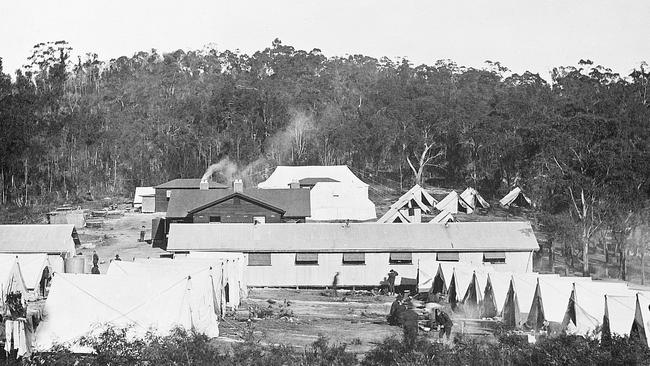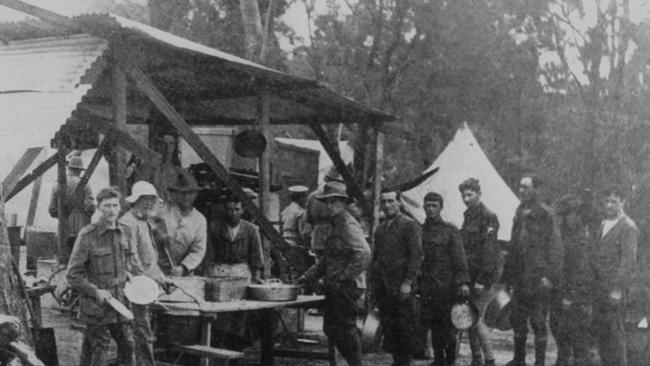ONE hundred and one years ago, Tasmania closed its borders to protect its population from a deadly scourge sweeping the world – the Spanish flu.
It worked. Mostly. The island state had one of the lowest death tolls in the world, with only 171 locals succumbing to the virus.
Today, Premier Peter Gutwein announced drastic measures to protect Tasmania from the coronavirus outbreak, with the strictest border controls seen in the state since 1919.
The move for any arrivals into the state to undergo a 14-day quarantine comes following calls from all opposition parties amid escalation of the virus overseas and interstate.
Back in 1919, the pandemic eventually broke through Tasmania’s borders when it claimed the life of a young woman at Sandy Bay that August.

Local Spanish flu researcher Craig Carnes said although Tasmania had been expecting the flu to arrive, the “government was totally unprepared” and lacked organisation, facilities and medications.
“There were complaints about the state government being unprepared considering the flu was travelling at us from around the globe,” he said.
But he said from the point the state was declared infected, all libraries, schools, pictures shows, races and football matches were shut down.
Anyone leaving the state needed a medical clearance from Hobart first – which angered residents paying for permission to leave their “clean state”.
Mr Carnes said a seven-day quarantine of ships into the state was reduced to three days after the flu broke – but supplies spoiled in the meantime, with shipments of apples rotting on Hobart’s wharves.
Mr Carnes said Tasmania wanted to build its own fleet of steamships so it could be independent from the mainland, and the view among the state’s community was the island should be “totally isolated”.

Only three people were allowed in Tasmania’s pubs at a time, and only for five minutes – but the hospitality industry was hit hard, and unemployment in general soared.
Mr Carnes said soldiers returning from war were quarantined on Bruny Island and at Claremont, but there was concern among the community that their movements were not properly monitored.
Meanwhile, laws were brought in making it compulsory to wear a mask in public – or cop a 10-pound fine – and a black market selling the items began after the government was unable to maintain supplies.
Mr Carnes said “history repeats” and that he hoped Tasmania had learnt from its past.
“The lessons are very parallel … I think we are doing better. I think we are a bit calmer,” he said.
“But as with 1919, anxiety is setting in. We’re panic-buying and we have become ego-driven with our own, rather than communal needs.”

Add your comment to this story
To join the conversation, please log in. Don't have an account? Register
Join the conversation, you are commenting as Logout
Long Covid: Tassie’s hidden epidemic
Covid lockdowns may be a distant memory for many, but for Tasmanians living with the often-debilitating symptoms of long Covid, the pandemic has left a lasting impact.
Experts push for double shot as new Covid wave looms
As deaths from Covid continue, Tasmanians are being urged to get boosters and flu shots with doctors saying infection rates are “taking off and complacency is setting in”. LATEST FIGURES >>